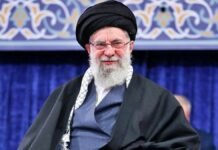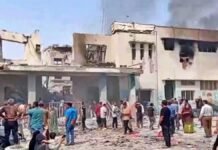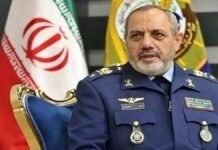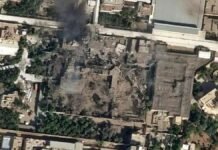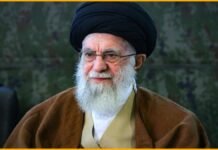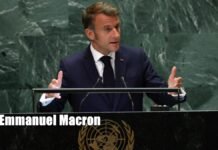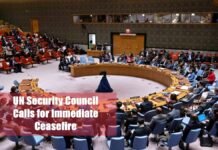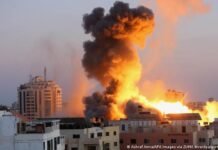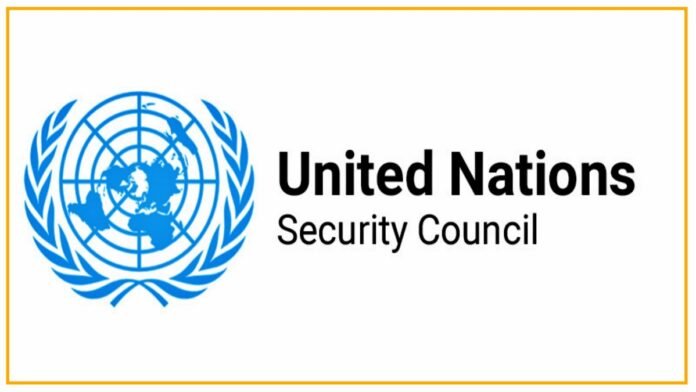
New Delhi: In response to intensifying hostilities between Israel and Iran, the UN Security Council (UNSC) will hold an emergency meeting on Monday at Iran’s request, backed by Algeria, China, and Russia. This move follows Israel’s recent airstrikes on Iranian military targets in retaliation for Tehran’s October 1 missile assault, signaling a deepening crisis in the region.
Switzerland Leads Emergency Session in Response to Iran’s Call for Action
Switzerland, holding the rotating UNSC presidency, confirmed on Sunday that the council would address Iran’s concerns over the escalating violence. Tehran’s formal request comes amid fears that the mounting tensions could destabilize the region further. Over the weekend, Israeli jets targeted Iranian military installations, reportedly killing four Iranian soldiers and damaging radar systems. Israel’s strike followed Tehran’s ballistic missile attack on October 1, which itself was in retaliation for the targeted killing of Iran-backed militant leaders and an Islamic Revolutionary Guard Corps (IRGC) commander in Syria.
Rising Casualties and Regional Risks Amplify Concerns of Wider Conflict
Iran’s President Masoud Pezeshkian, speaking at a tribute for the fallen soldiers, praised their “bravery in defending their land.” While condemning Israel’s actions, Iran’s foreign ministry emphasized its right to defend itself while signaling a commitment to “regional peace and security.” However, the restrained statement marks a contrast from Iran’s historically severe rhetoric, suggesting a possible effort to avoid further escalation with Israel, which has warned Tehran against any retaliatory measures.
Growing Regional and Global Tensions Threaten Energy Supplies
This latest exchange follows the October 7 Hamas-led attack on Israel, backed by Iran, which has exacerbated Israeli-Iranian hostilities and heightened the risk of broader regional conflict. The Israeli military is also actively engaged with Hezbollah forces in Lebanon, aiming to curb rocket fire across its northern border. The prospect of a wider conflict involving Lebanon has alarmed neighboring countries, particularly as fears grow of disruptions to oil supplies and broader international involvement in the region.

The UNSC session, seen as critical for diplomatic intervention, will weigh potential responses to the Israeli-Iranian escalation and examine the implications for broader Middle Eastern stability. Both the UNSC and international observers will be watching closely, hoping to avoid further provocations and foster dialogue amid a tense and rapidly evolving situation.






